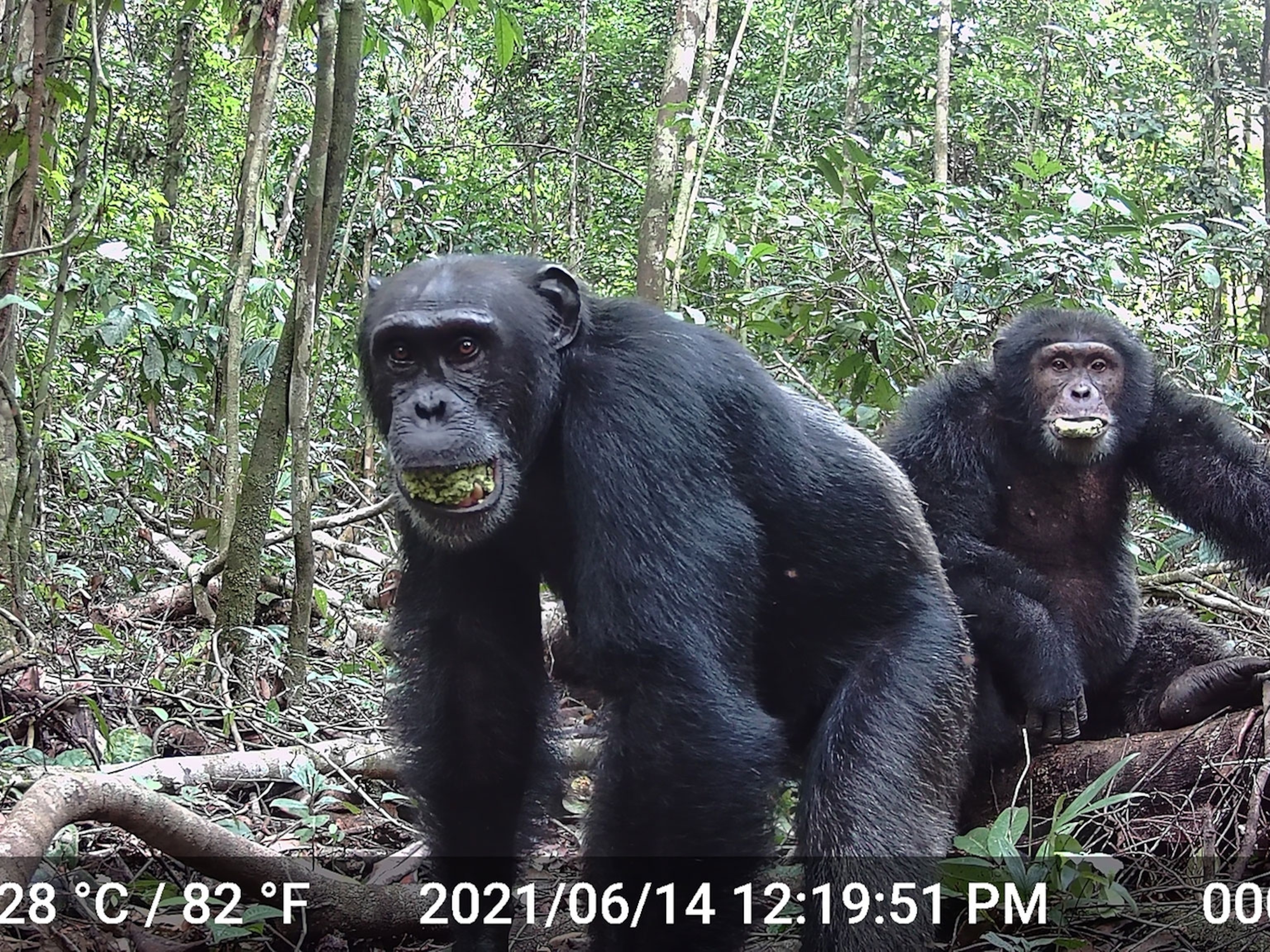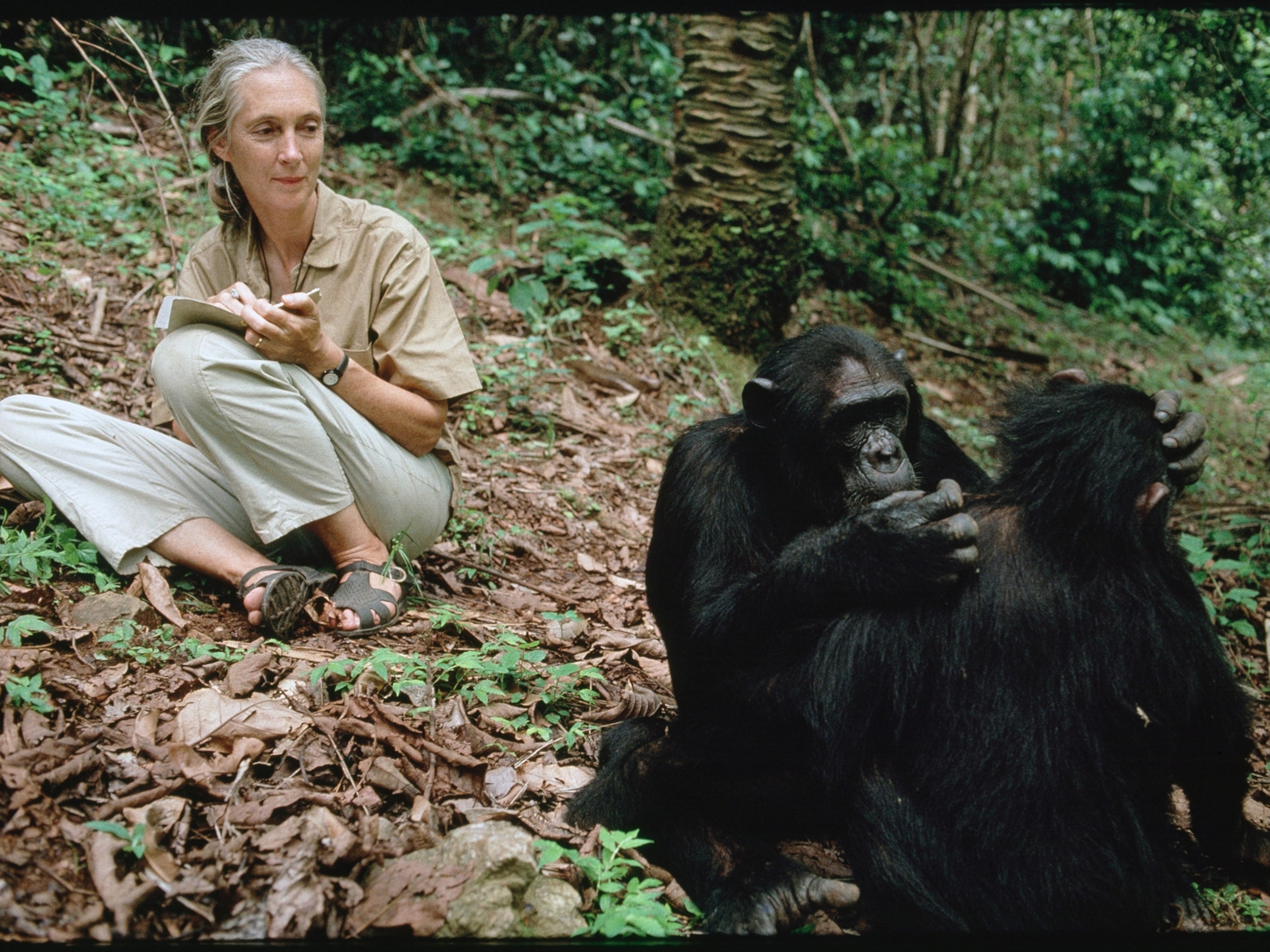
Do Chimps Trade Food for Sex?
When male chimpanzees seek sex but female chimps are more interested in food, the result is a passionate clash of appetites.
Food. Sex. They're primal preoccupations for humans and our close relatives, chimpanzees. For years Homo sapiens scientists have watched those appetites play out among Pan troglodytes with mixed results.
Female chimps average five to six years between births, one of the longest intervals of any mammal. To raise the odds of reproducing, a female will mate "with most or all of the males she knows," says primatologist Melissa Emery Thompson of the University of New Mexico, while a male will compete or fight with other would-be sires.
Some studies report cases of male chimps trying to sweeten the deal: sharing game they killed, or crops they filched, with females that mated with them. In a 2007 West African chimp study, a female consorted more frequently with a male that gave her stolen papayas, leading researcher Kimberley Hockings, a postdoctoral student at Oxford Brookes University in the U.K., to suggest the male was trading "forbidden fruit" for "other currencies." (Read "The Truth About Chimps" in National Geographic magazine.)
Many studies don't support the food-for-sex theory, Emery Thompson says: "People tend to hang on to the idea because they find it titillating." What her chimp research has found, she says, is a different food-sex issue.
With sex-seeking males surrounding them, females are less able to forage and feed. That drives down fertility and their ability to replenish their endangered species.
The feature Basic Instincts: A genteel disquisition on love and lust in the animal kingdom appears every month in National Geographic magazine.





